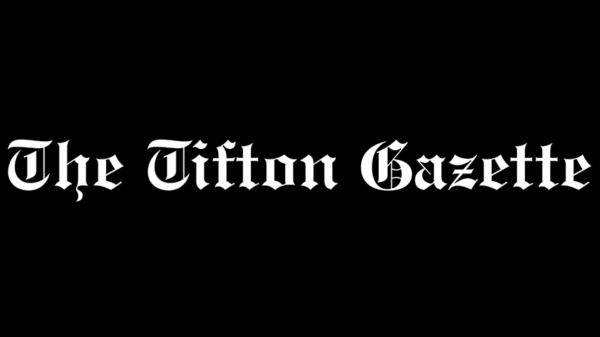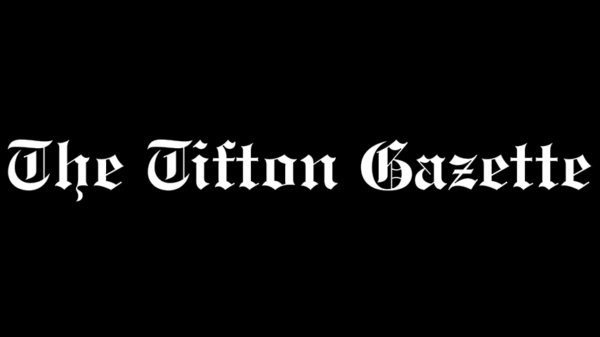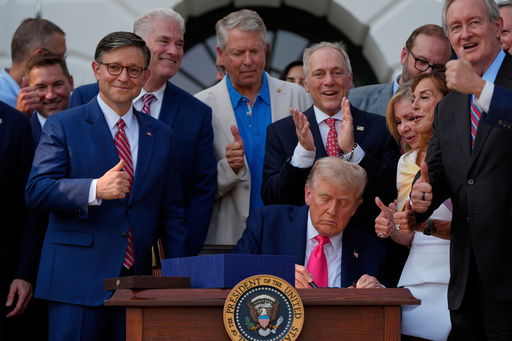Lawmakers in New Mexico are convening a special session to enhance funding for food assistance and rural health care, measures aimed at mitigating the effects of President Donald Trump‘s recent tax cuts and spending reductions. The Democratic governor, Michelle Lujan Grisham, has described these actions as essential to minimize the impact of what she termed “Trump’s disastrous bill.” This session follows a similar move in Colorado, where the Democratic governor, Jared Polis, indicated that Trump’s tax cuts have created significant budgetary challenges.
Democratic leadership in other states, including California and Oregon, is similarly debating the necessity of special sessions. California’s recent legislation aims to counteract the financial implications of Trump’s tax cuts by allocating funds for food programs, while Oregon is contemplating adjustments to its tax codes to address potential losses.
Republican-led states, in contrast, have not initiated similar measures, highlighting a stark partisan divide regarding the impact of Trump’s tax legislation. This raises the question of whether Republican states are disregarding the financial fallout or if Democratic states are overstating the urgency of the situation.
Political analysts, such as Steven Rogers, an associate professor at Saint Louis University, suggest that Democratic actions may be partly geared toward gaining political visibility, stating, “Probably Democrats are doing a little bit for grandstanding.” He added that Republicans might feel comfortable with the current situation or prefer to avoid conflict with Trump.
The legislation, informally referred to by Republicans as the “One Big Beautiful Bill Act,” is anticipated to affect states differently. Federal tax cuts could diminish revenues for states that align their income taxes with federal codes starting from the 2025 tax returns. Additionally, reductions in federal spending on Medicaid and food assistance may compel states to allocate more of their own resources to social safety net programs. The new Medicaid work requirements, which stand out as a significant change, will not take effect until 2027.
New Mexico’s proactive stance is evident as lawmakers aim to earmark more funds this fiscal year for food assistance and rural health services. They are also considering expanding state subsidies for health insurance under the Affordable Care Act, which currently supports approximately 75,000 residents. With an estimated $200 million annual loss expected due to the new federal tax cuts, the state is still in a strong fiscal position, bolstered by rising oil production. “We’re in a position fiscally to be able to be proactive,” said Peter Wirth, the Democratic state Senate Majority Leader.
In California, Governor Gavin Newsom recently signed legislation providing $255 million in response to Trump’s tax changes and other federal policy shifts. This includes $84 million aimed at reducing errors in the Supplemental Nutrition Assistance Program (SNAP) benefit payments. Should states exceed an error rate of 6%, they may incur costs starting in October 2027. California’s legislation also allocates $40 million for counties to manage new SNAP work requirements and $20 million to enhance emergency food bank support.
Colorado and Oregon are similarly responding to the implications of federal tax cuts. In August, Governor Polis called a special session to address a projected $783 million budget shortfall stemming from Trump’s tax legislation. The Democratic-controlled legislature in Colorado has already begun to rectify some of that gap by eliminating certain corporate tax breaks and authorizing the sale of state tax credits. In Oregon, officials are considering decoupling from some of Trump’s tax changes to protect state revenues.
Republican-led states, including Iowa, Montana, and North Dakota, have not expressed similar concerns, despite also linking their tax codes to federal adjustments. For instance, Montana faces an estimated $114 million annual loss due to the tax cuts, but Republican state officials believe they can address these issues during their next regular session in 2027. Lawmakers in North Dakota are discussing a potential early session, but the focus will be on allocating funds from a $50 billion rural health care grant included in Trump’s legislation, rather than addressing tax cuts.
In Iowa, the state’s adherence to the federal tax code may result in a $437 million loss to its general fund this fiscal year, compounded by the effects of Trump’s trade policies on agriculture. However, Governor Kim Reynolds expressed confidence in the state’s financial resilience, emphasizing the importance of being cautious moving forward. “We’re in a good position to weather some of the ag and some of the effects of the One Big Beautiful Bill,” Reynolds stated.
As Democratic states take measures to address the ramifications of Trump’s tax policy, the contrast with Republican-led states raises important questions about the political implications and the broader impact on state budgets and social safety nets. The differing responses could have lasting effects on the fiscal health of states and their ability to support vulnerable populations in the face of federal changes.








































































